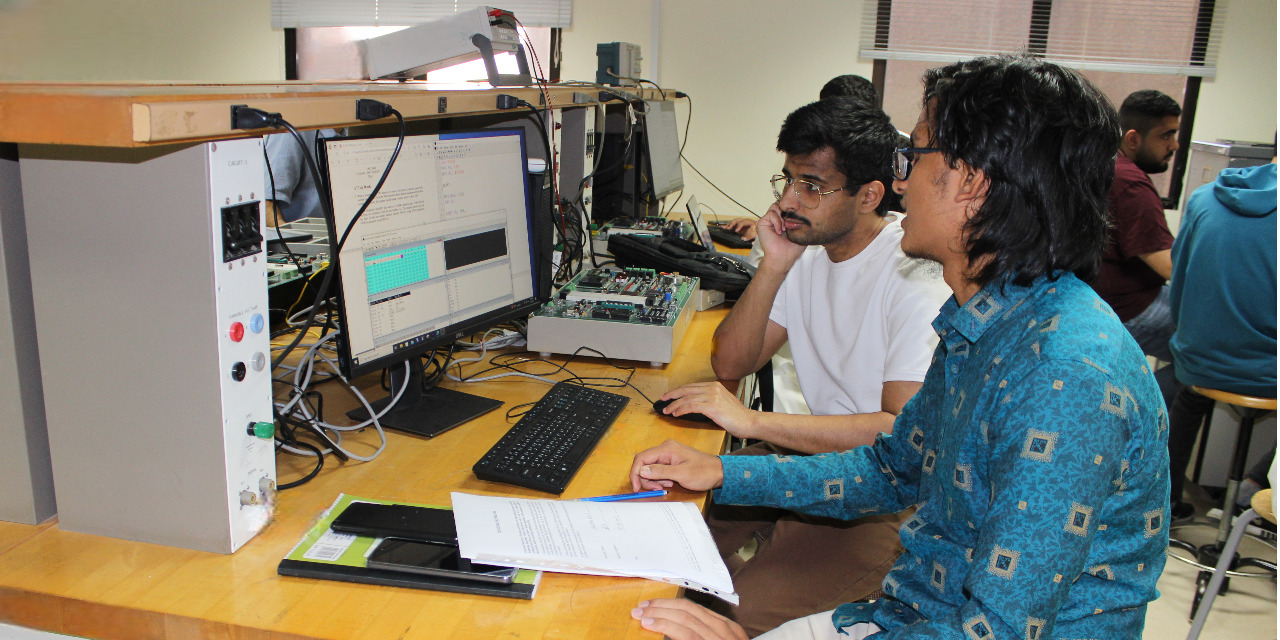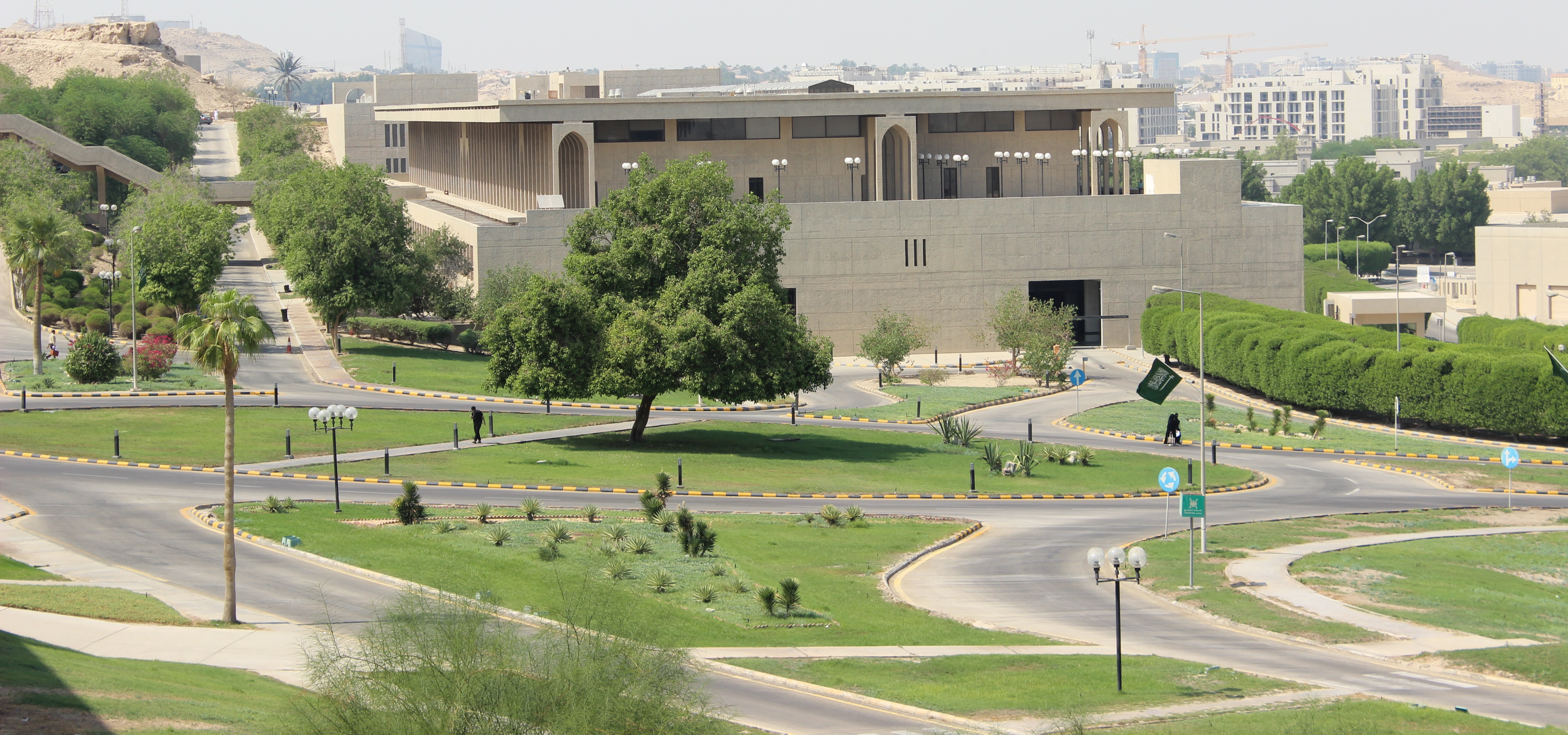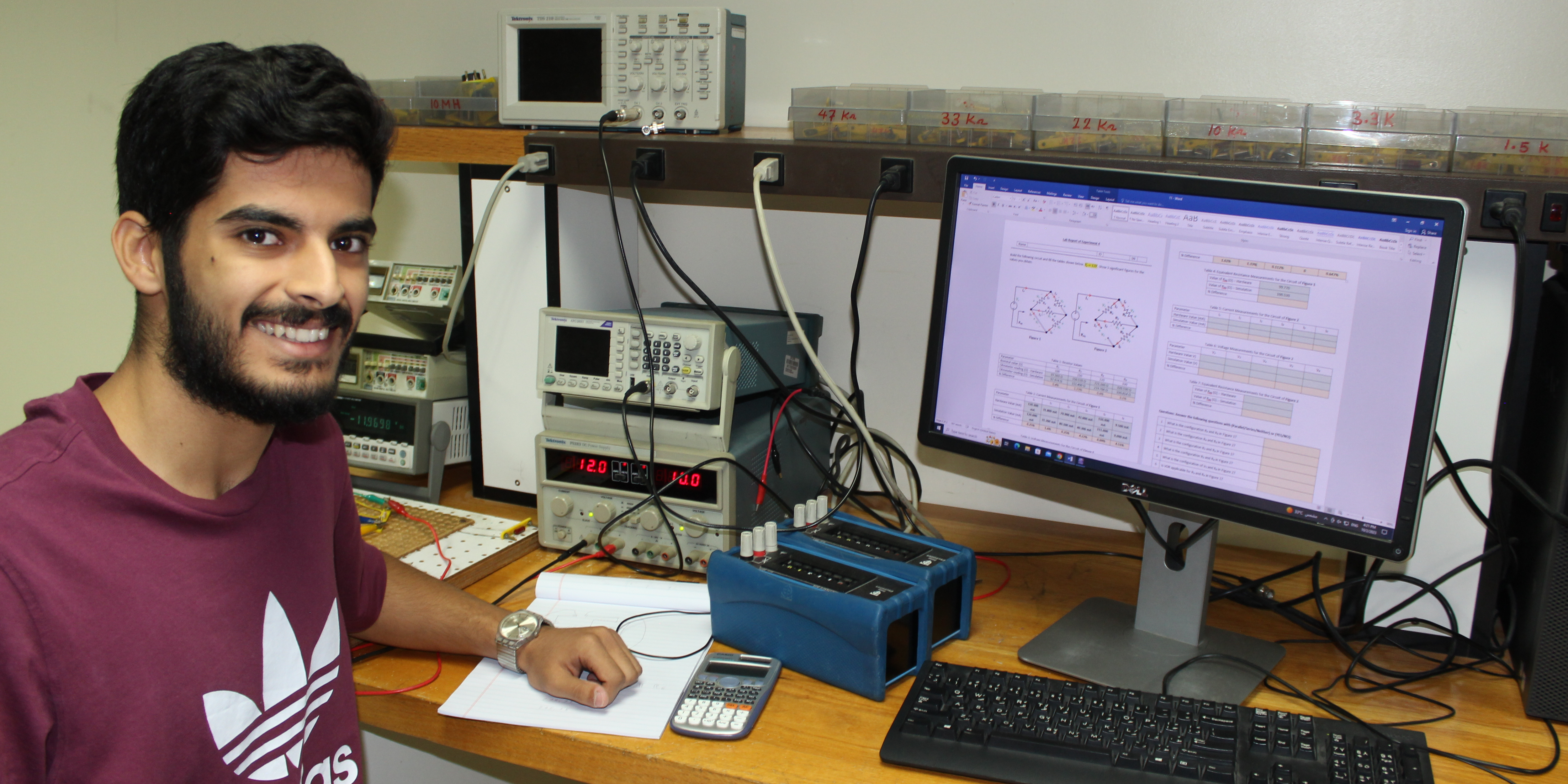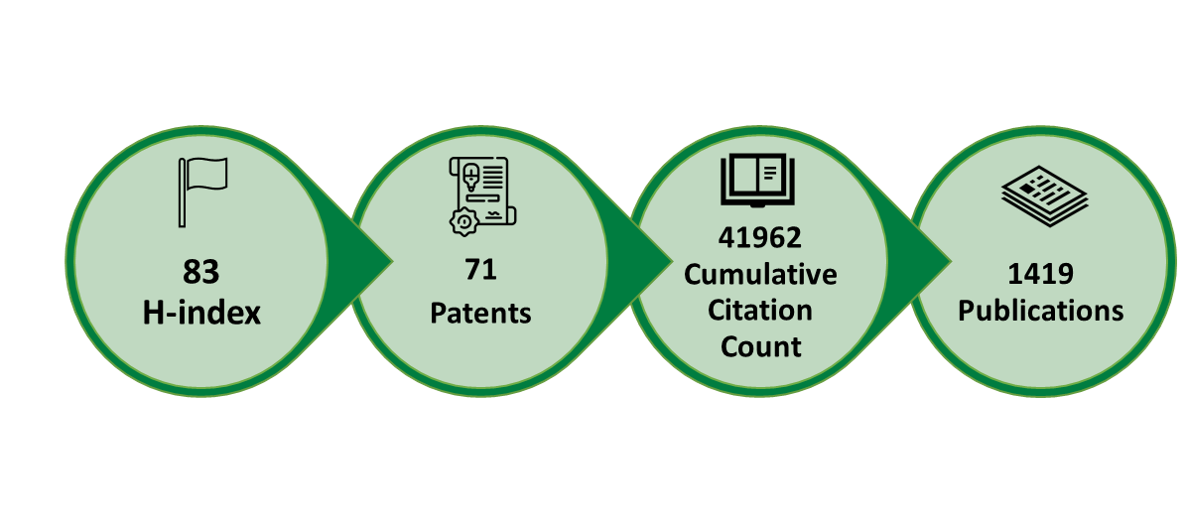Dream Big, Dream EE

Welcome to Electrical Engineering Department

The Future Starts Here

The Road to Success Begins

EE Department

The Electrical Engineering department at KFUPM came into existence with the establishment of the University of Petroleum & Minerals in 1967. It is one of the largest departments in the University with an average number of students being approximately 900, 16% of whom are in the graduate program. The department provides 2 four-year undergraduate programs, Bachelor of Science in Electrical Engineering and Bachelor of Science in Electrical Engineering and Physics. The graduate program offers Master of Science and Master of Engineering in Electrical Engineering, Master of Science in Telecommunication Engineering, Master of Sustainable and Renewable Energy, Master of Wireless Communication Networks, and Ph.D. in Electrical Engineering.
The department has about 61 full-time faculty members in 6 specialized areas of research. The Groups in the department are: Energy Systems, Communications, Electronics, Control Systems, Electromagnetics, and Digital Signal Processing. Additionally, a pool of experienced engineers and technicians maintain more than 30 laboratories in the department.
To be globally known for skillful graduates and quality research with focus on national needs.
For more information, you can visit the following :

On November 5, 2025, Dr. Ahmed Mohamed—Postdoctoral Fellow with the Interdisciplinary Research Center for Communication Systems and Sensing—delivered a seminar titled “Silicon-Based CMOS Integrated Circuits for Low-Power Sensing Applications.”
The talk showcased how advances in analog and mixed-signal CMOS are pushing bio-signal acquisition and intelligent edge processing into smaller, smarter, and more energy-efficient form factors. Dr. Mohamed detailed three hallmark designs: a temperature-insensitive PPG acquisition system that stabilizes hemodynamic monitoring in real-world conditions; a compact biosignal front-end built around a rail-to-rail current conveyor with an active inductor for precise, low-power filtering; and an analog AI accelerator implementing a radial basis function neural network to enable fast, on-chip classification without the energy overhead of digital inference. Together, these innovations illustrate how circuit-level ingenuity can unlock reliable, continuous sensing for next-generation wearables and healthcare monitoring systems.
Participants left with practical design takeaways—how to co-optimize sensor interfaces, analog signal conditioning, and embedded intelligence to cut power, boost robustness, and shorten the path from lab prototypes to deployable, patient-centric devices.
The following are the highlights of the event:

Testing and Control of EV Charging and Energy Storage in Smart Electrification Systems
Trustworthy AI for the Grid: Verification-Informed Neural Networks for the ACOPF Problem
The Electrical Engineering Department (EE) at KFUPM provides a world-class education and innovative learning experiences for both undergraduate and graduate students.
Click on the following button to access online admissions application portal :